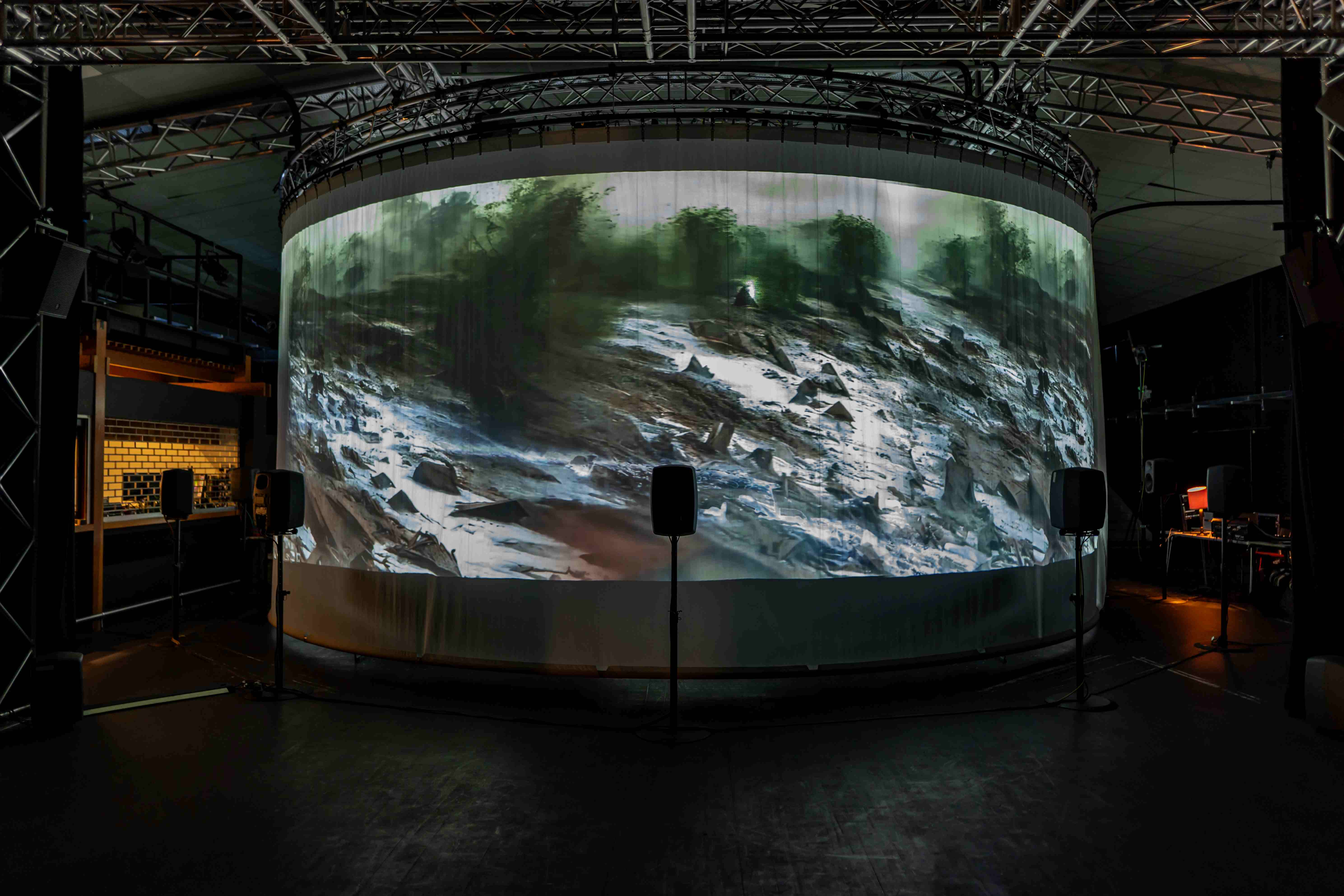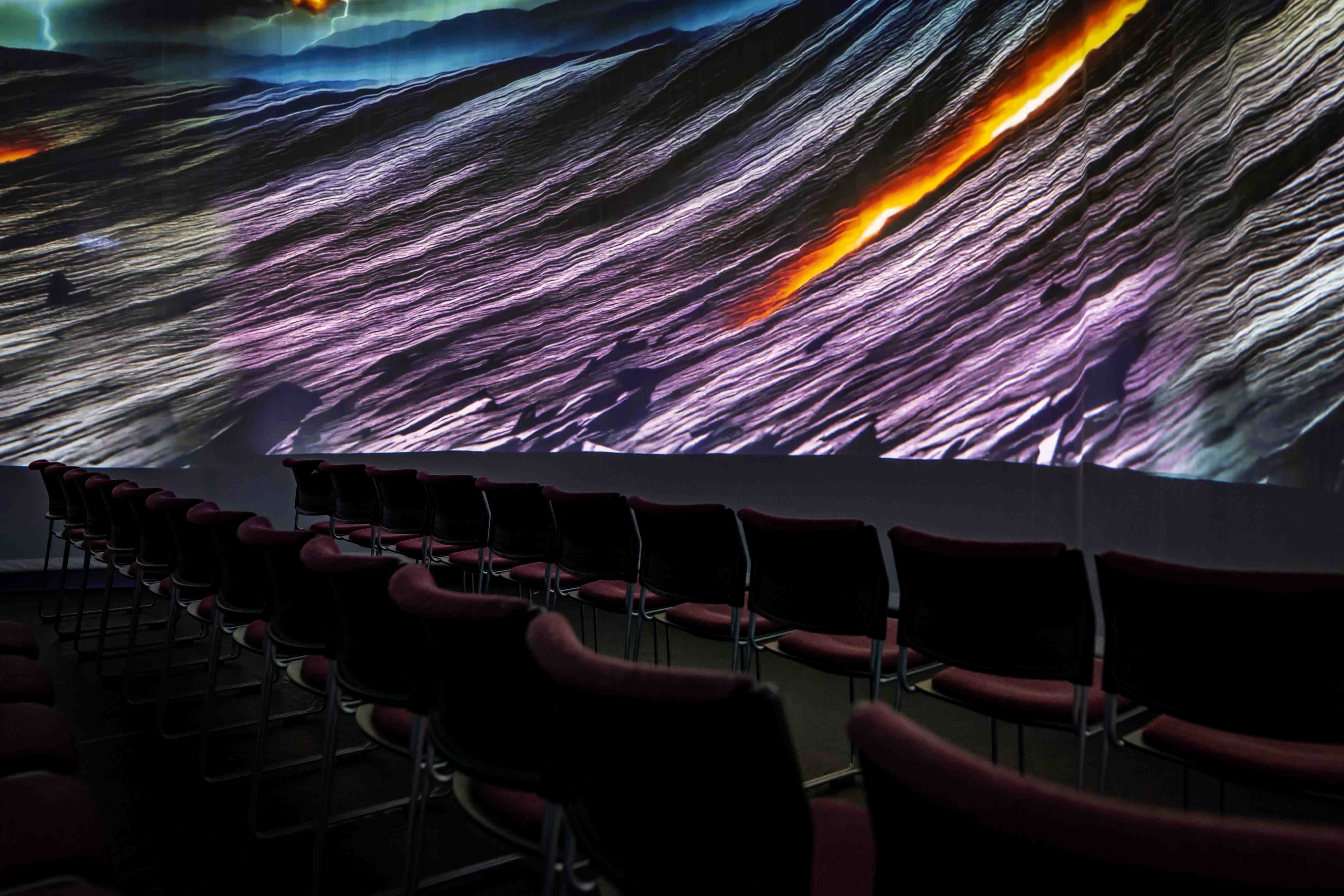

The project comprised of developing an Immersive Digital Theatre at Bathway in Woolwich, and a new Spatial Audio and Virtual Reality Lab within the King William Building, on our Greenwich campus.
The project was funded through the Arts and Humanities Research Council’s (AHRC) Creative Research Capabilities initiative, which allocates government funding to bolster creative practices.
Designed in partnership by Professor Andrew Knight-Hill and Dr Dave Hockham, and expertly implemented by Stage Electrics, both spaces now facilitate innovative research, experimental theatre, and hands-on learning.
At Bathway Theatre, Stage Electrics developed a modular system including a 360° screen and adaptive speaker arrays, enabling users to configure the space to suit a range of immersive experiences. A raise-and-lower rigging system was introduced to reduce working at height, improving safety and accessibility for students.
Ryley Pennycard, Theatre Technician and Former BA Drama Student at the University of Greenwich said:
The new setup has completely transformed how we work. Previously, we were limited to a conventional theatre style, and tech weeks were a nightmare with constant maintenance and setup. Now, with the adaptable space, we can work across three distinct areas, saving significant time during get-ins and allowing for more flexibility in the curriculum.
Meanwhile, the Spatial Audio and Virtual Reality Lab in the King William Building uses a Genelec speakers in a spherical formation, offering a high-precision sound environment without compromising the architectural integrity of the heritage site.
Professor Andrew Knight-Hill said:
The sound lab was designed as an intimate space for focused composition, editing, and research. We wanted a dimensional surround sound array—not just on one plane, but with height and depth as well. The challenge was creating the largest possible sound sphere without altering the historic structure of the old Royal Naval College building.
These facilities have already expanded the university’s learning opportunities, enabling new research-driven work in spatial audio and hosting internationally recognised events such as the SOUND/IMAGE Festival, which welcomes over 500 researchers from 16 countries annually.
This project exemplifies SHIFT’s mission: to support innovation, inspire interdisciplinary practice, and champion the creative industries as a vital force for social and cultural progress.
Here is a case study for your reference: Stage Electrics SHIFT Case Study

